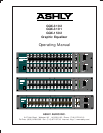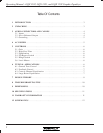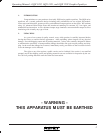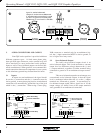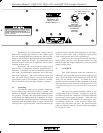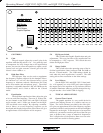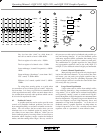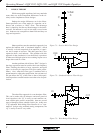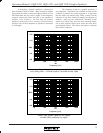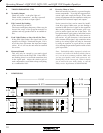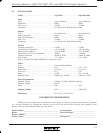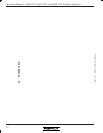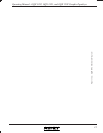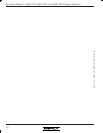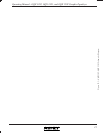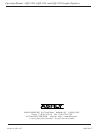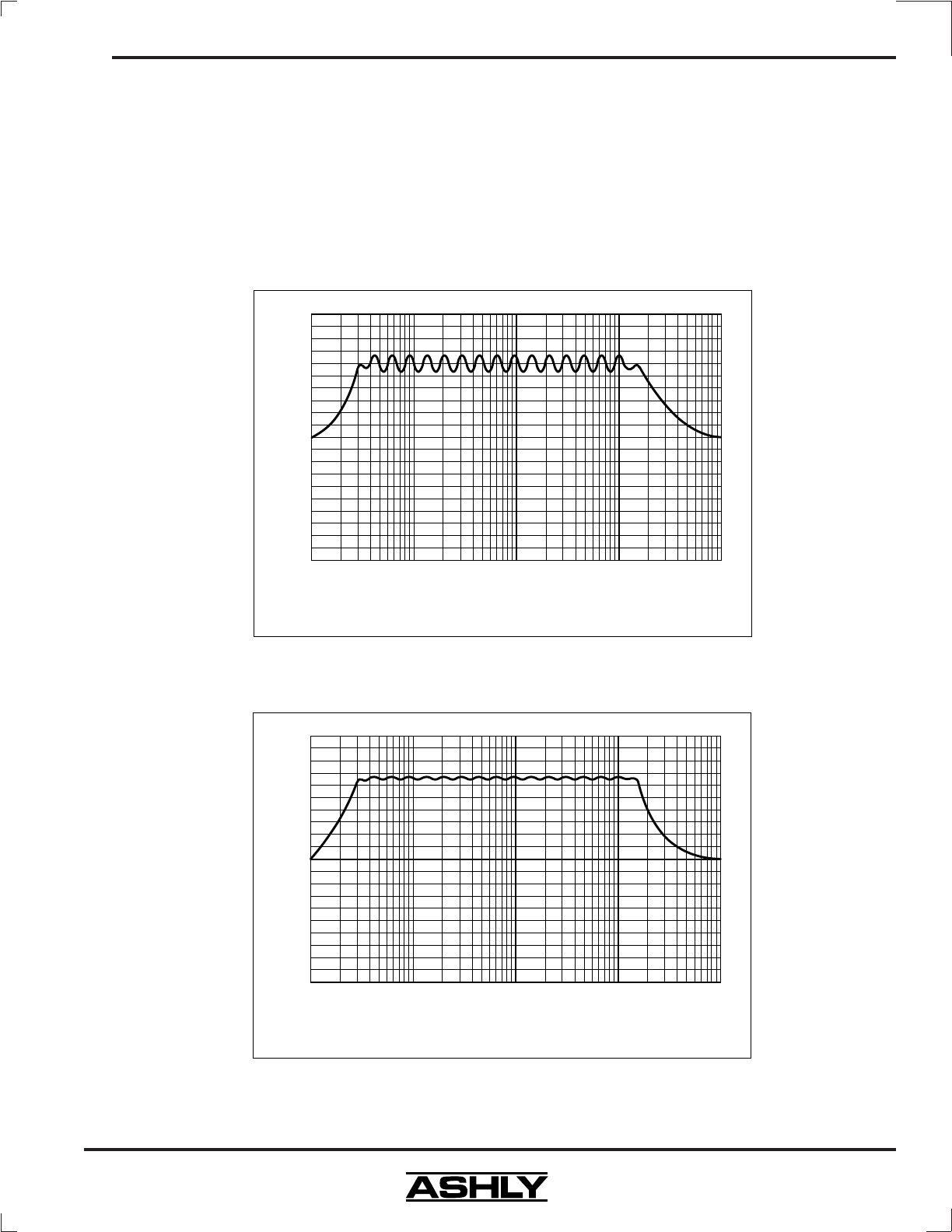
9
Operating Manual - GQX 3102, GQX 3101, and GQX 1502 Graphic Equalizer
In designing a graphic equalizer, a selection of
filter sharpness must be made. More sharpness (higher
Q) produces less filter overlap and tighter control over an
individual band, but also causes “ripple” in the frequency
response when many filters are boost or cut together to
produce a flat response. We feel that the graphic
equalizer’s primary use is for “voicing” and tone control,
and have set our filter sharpness to produce a maximum
of 1dB ripple.
The summing system in a graphic equalizer is
also important. Since there are a number of filters which
combine to produce the overall response, it is important
that the filters not interact (they WILL overlap, but the
response of one filter should not modify the response of
another). Ashly uses an “interleaved” summing system
where every other filter uses the same summing ampli-
fier so that adjacent filters never share the same drive
and feedback signals. This allows the filters to maintain
their natural response.
10 100 1K 10K 100K
Hz
-20
dB 0
+20
+10
-10
Frequency (Hz)
10 100 1K 10K 100K
Hz
-20
dB 0
+20
+10
-10
Frequency (Hz)
On most graphic equalizers, frequency response ripple is produced by
overly sharp filters. (15-band equalizer, all bands boosted 15dB)
Ashly's GQX graphic equalizers use slightly
broader filters producing less ripple.



